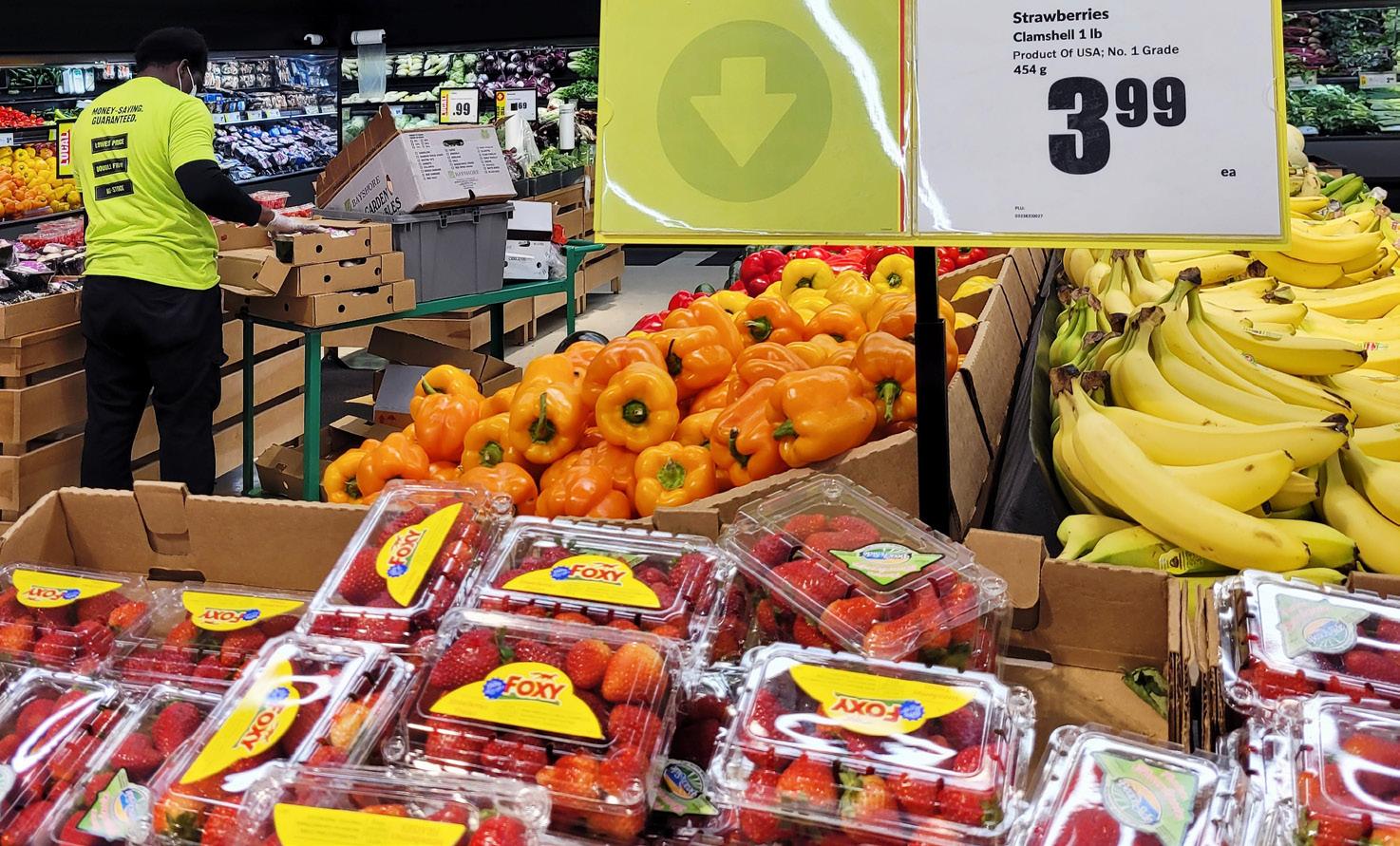
3 minute read
We Cannot Automate Food Workers’ Jobs After COVID-19 ●
from Pro Tem - Vol. 60 Issue 1
by Pro Tem
Ameer Shash Contributor
Grocery store workers are employed in a field of work that is considered essential to sustaining life. Alongside emergency services, grocery jobs ensure that communities are healthy - providing ease of access to food and other basic necessities. While it remains to be seen if emergency service jobs can be automated, automation in the grocery industry is becoming increasingly common, particularly with the rise of self-checkout kiosks and online shopping. However, should we lend the upper hand - or in this instance, the robotic arm - in the grocery industry to machines? The answer is a resounding no. The automation of grocery stores will normalize antisocial behaviour, expose customers to fraud, and finally, automated grocery store technology will devalue mathematical skills. The COVID-19 pandemic has confined many to their homes. Contact with loved ones has been put to an abrupt halt in the wake of restrictions that came into effect in Ontario last year. To make matters worse, when customers visit their local grocery store, there is a chance that the store is partially run by self-checkout machines. This points to a disturbing trend. In the future, if self-checkout kiosks become the only option for buying groceries, human interaction will decrease, leaving many people feeling more lonely and isolated than ever. The removal of people working in grocery aisles or behind cash tills will further normalize the idea that we don’t need to talk to people anymore to get what we need. The self-checkout machine does not ask you how your day was, or if you found every item that you were looking for. Unsuspecting people experiencing fraud is also of great concern within the context of a fully automated grocery store. In one recent instance, a woman from Uxbridge fell victim to a well-known telephone scam, where she was ordered by what seemed to be a Canada Revenue Agency officer to purchase a large quantity of Google Play Store gift cards. Unbeknownst to the victim, the “officer” was a scammer who was seeking malicious monetary gain. Luckily, when the woman attempted to make the requested purchase at a Shoppers Drug Mart, the cashier quickly realized that there was something amiss. When questioned about the odd purchase, the woman explained the phone conversation to the cashier. It then became clear to the cashier: the woman had been deceived by a telephone scam. The cashier chose not to proceed with the transaction, ultimately saving the woman from a scam that would have cost thousands of dollars. Automated grocery stores disallow the assurance of a true, human experience with a grocer. Lastly, with the elimination of human workers, jobs extending beyond retail and grocery sectors may devalue math skills because robots are calculating customers’ balances for them. Consequently, math and analytical skills could no longer be a requirement in the grocery sector, which has major ramifications for education and human cognition. There wouldn’t be the need to count change for customers. The obsolescence of cash has the potential to disproportionately affect vulnerable groups including small businesses, the elderly, people who rely on cash, and those who wish to keep their transactions anonymous. It is without a doubt that working in an ever-demanding industry is exhausting, but technological innovation should never incite fear of increased isolation, rampant criminal activity, and job loss. Equipped with these new considerations, the next time someone asserts their proposition on grocery store automation, tell them that you’ve “got this in the bag!”
Advertisement









